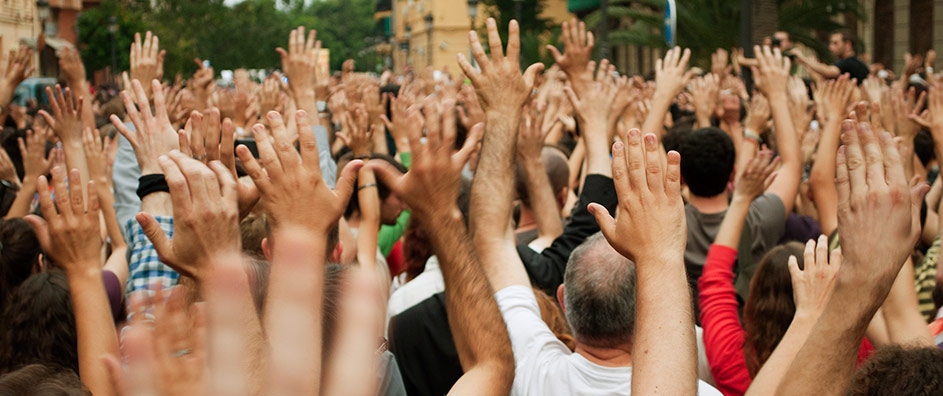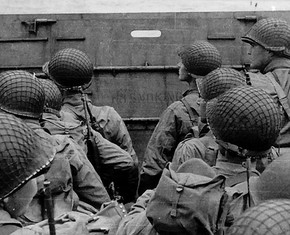The views expressed in our content reflect individual perspectives and do not represent the authoritative views of the Baha'i Faith.
During the past two decades, the world’s peoples have both propagated and experienced groundswells of civil unrest for a multitude of reasons.

One reason stands out: civil disobedience used to overthrow corrupt and evil leaders and governments that suppress human rights. This kind of civil unrest—with names like the Arab Spring—attempts to install democracy where autocracy or theocracy has long ruled. In the process, lives are being lost in defense of human rights, and lives are being lost trying to suppress them. These battles are being fought internally, inside national borders, with the goal of establishing democratic republics. Many of those battles have already resulted, and many more will likely result, in the implementation of the model of democratic federalism that the Baha’i teachings so strongly recommend:
You can best serve your country, was Abdu’l-Baha’s rejoinder to a high official in the service of the federal government of the United States of America, who had questioned Him as to the best manner in which he could promote the interests of his government and people, if you strive, in your capacity as a citizen of the world, to assist in the eventual application of the principle of federalism underlying the government of your own country to the relationships now existing between the peoples and nations of the world. – Shoghi Effendi, The World Order of Baha’u’llah, p. 37.
America’s federation of colonies and later states has become a model of organization that many other nations subsequently adopted. In the 18th Century world of Kings and Queens and authoritarian rulers fighting to expand their territory and borders, the rise of democracy in America and France stunned the globe. Today those autocrats are gone, just as Baha’u’llah promised they would be if they resisted the spirit of the age. Since then, the growth of representative democracies has outstripped any other form of government. Here’s how democracy grew during the 20th Century:
Besides depicting the meteoric rise of democratic nations, this chart also shows clear growing unrest, anarchy and civil wars in the countries without democratic representation.
Essentially, democratization has become the standard generic process that all nations and peoples will eventually go through. The clash of strong opinions and civil unrest seem simply unavoidable, unless authoritarian rulers voluntarily give up their power and allow the people to rule. Those kinds of peaceful revolutions have happened in several countries already—the Philippines, Poland, Czechoslovakia, Ecuador, etc. Even after a nonviolent revolution, however, achieving democracy is difficult, takes years to stabilize, is contentious and sometimes bloody, and must provide the political means for affecting reasonable policies of any new government.
But the rewards, once achieved, are too significant to overlook. Equal treatment under the law, free speech, freedom of assembly, the right to own property, freedom from slavery and the government-supported right to work—people have died for these since long before the American Revolution.
In a public address to an American church congregation in 1912, Abdu’l-Baha said:
Consider what a vast difference exists between modern democracy and the old forms of despotism. Under an autocratic government the opinions of men are not free, and development is stifled, whereas in democracy, because thought and speech are not restricted, the greatest progress is witnessed. It is likewise true in the world of religion. When freedom of conscience, liberty of thought and right of speech prevail—that is to say, when every man according to his own idealization may give expression to his beliefs—development and growth are inevitable. – The Promulgation of Universal Peace, p. 197.
The full democratization of all 196 or more countries of our world today hasn’t yet been fully realized—but the trend is clear. As Abdu’l-Baha predicted while in the United States in 1912, the 20th Century, “this century of light,” and the beginning decades of the 21st, have set the stage and put the forces in motion necessary to accomplish this gigantic task.
Civil unrest, with the goal of establishing fully independent, fully sovereign democratically elected nations, as evidenced by global outbreaks of protests and movements, is now reaching its climax.
That physical climax, unfortunately, has given rise to terrorism in our times.
You May Also Like
Comments

















I mean, the populace knew nothing better than autocracies or theocracies and they were fed all this stuff about an evil sect full of apostates. But nowadays people know IS for what is is and did know about Adolf's megalamania and cruelty. I've got the flu at the present so I admit Greg that my thoughts might be all over the place on this one like a mad dogs breakfast.
With that said, if civil unrest does play a role ...in the unfolding world civilization prescribed by Baha'u'llah it is only in the negative sense as the breakdown of old regimes. There's no basis in the writings of the Baha'i Faith for interpreting it as a positive affirmation of a Baha'i inspired social order. That affirmation can be made and a Baha'i pattern of life established even in the absence of public revolt. It's by no means a necessary stage of development.